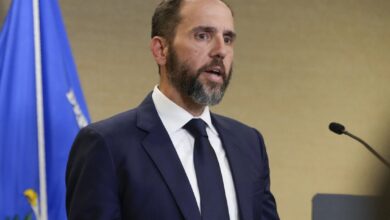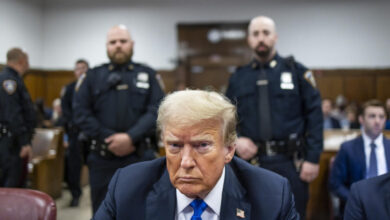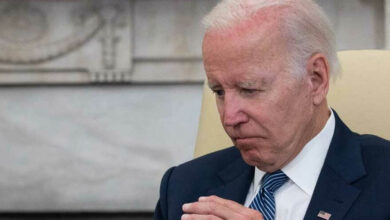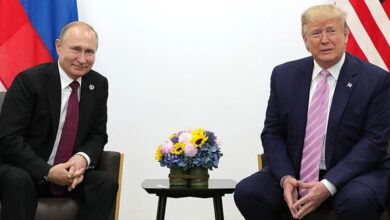Kim Jong Un Chastises the United States: A Foreboding Challenge for Trump
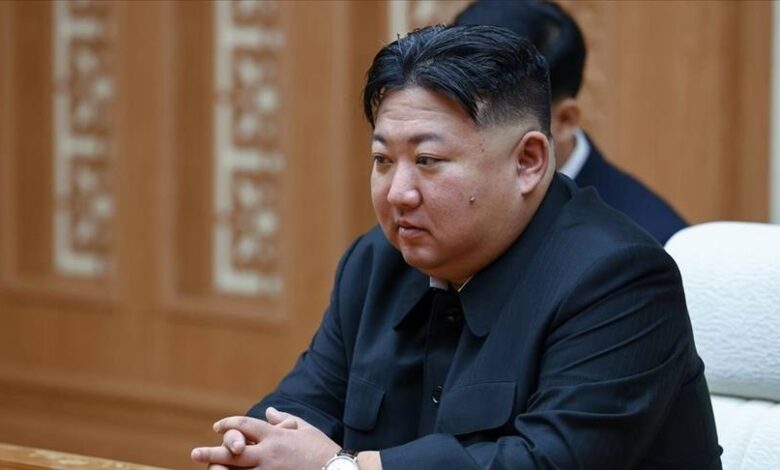
In a recent address, North Korean leader Kim Jong Un has publicly criticized the United States, marking a significant moment in the ongoing geopolitical tensions on the Korean Peninsula. This chastisement not only reflects Kim’s steadfast position against perceived American hostility but also sets the stage for potential challenges that may arise for former President Donald Trump should he return to the White House in the upcoming election.
Context of Kim’s Remarks
Kim Jong Un’s statements come in the wake of heightened military activities and diplomatic strains between North Korea and the United States. He accused the U.S. of exacerbating tensions through its military presence in the region and its ongoing support for South Korea. Kim’s rhetoric underscores a long-standing narrative that positions the U.S. as an adversary intent on undermining North Korea’s sovereignty and security.
Key Points from Kim’s Address:
Accusations of Provocation: Kim asserted that the U.S. has engaged in actions that provoke instability in the region, claiming that the Korean Peninsula has never been as tense as it is currently.
Hostility and Diplomacy: He characterized past negotiations with the U.S. as futile, suggesting that they only served to confirm Washington’s “unchangeable hostility” toward North Korea. This sentiment reflects a broader skepticism within the North Korean leadership regarding the efficacy of diplomatic engagement with the U.S.
Nuclear Posturing: Kim reiterated North Korea’s commitment to its nuclear program, warning that any further provocations from the U.S. would be met with a robust response. This statement is particularly concerning given the implications for regional security and the potential for escalation.
Implications for Donald Trump
As Trump contemplates a potential second term, Kim’s remarks present a complex challenge. During his previous administration, Trump engaged in unprecedented diplomacy with North Korea, including historic summits with Kim. However, the outcomes of these meetings have been widely debated, with critics arguing that they did not yield substantial progress toward denuclearization.
Potential Challenges for Trump:
Reassessing Diplomatic Strategies: Should Trump return to office, he may need to reassess his approach to North Korea. The current climate, characterized by Kim’s renewed hostility, may necessitate a more nuanced strategy that balances diplomatic engagement with a firm stance against provocations.
Domestic and International Pressure: Trump will likely face pressure from both domestic political opponents and international allies to adopt a clear and effective policy toward North Korea. The challenge will be to navigate these expectations while addressing the complexities of the North Korean regime.
Regional Security Concerns: The resurgence of aggressive rhetoric from North Korea could heighten security concerns among U.S. allies in the region, particularly South Korea and Japan. Trump will need to work closely with these nations to ensure a coordinated response to any threats posed by North Korea.
Kim Jong Un’s recent chastisement of the United States serves as a stark reminder of the persistent tensions that define U.S.-North Korea relations. As the geopolitical landscape continues to evolve, the implications for Donald Trump and his potential foreign policy decisions are significant. The interplay between diplomacy and military readiness will be crucial in addressing the challenges posed by North Korea, and the international community will be closely watching how these dynamics unfold in the coming months.

